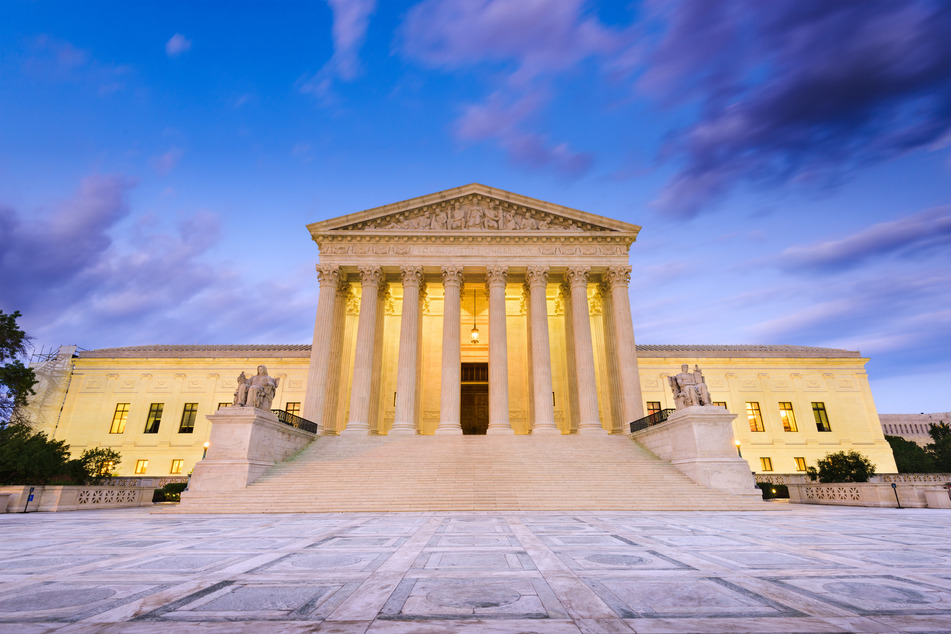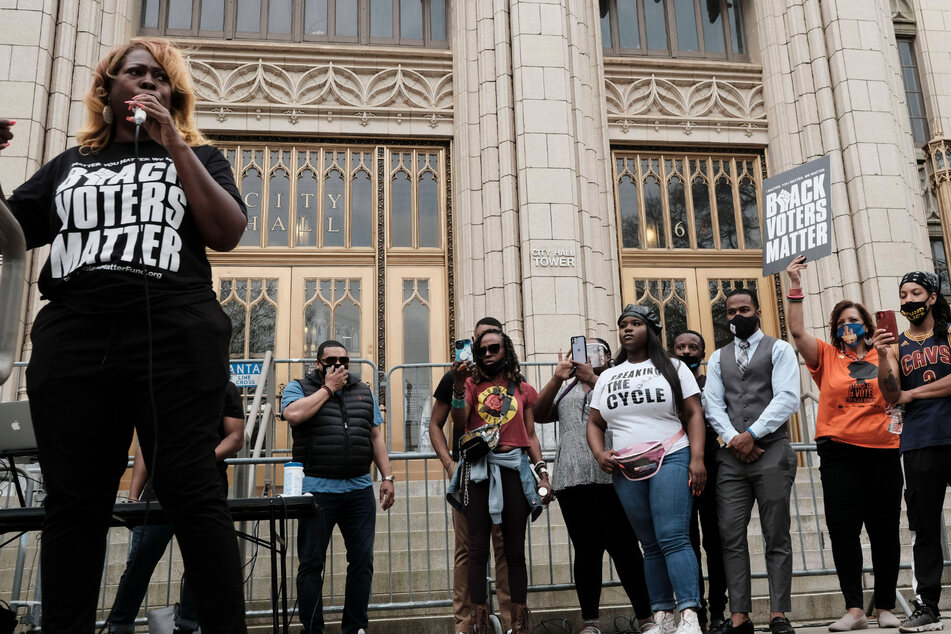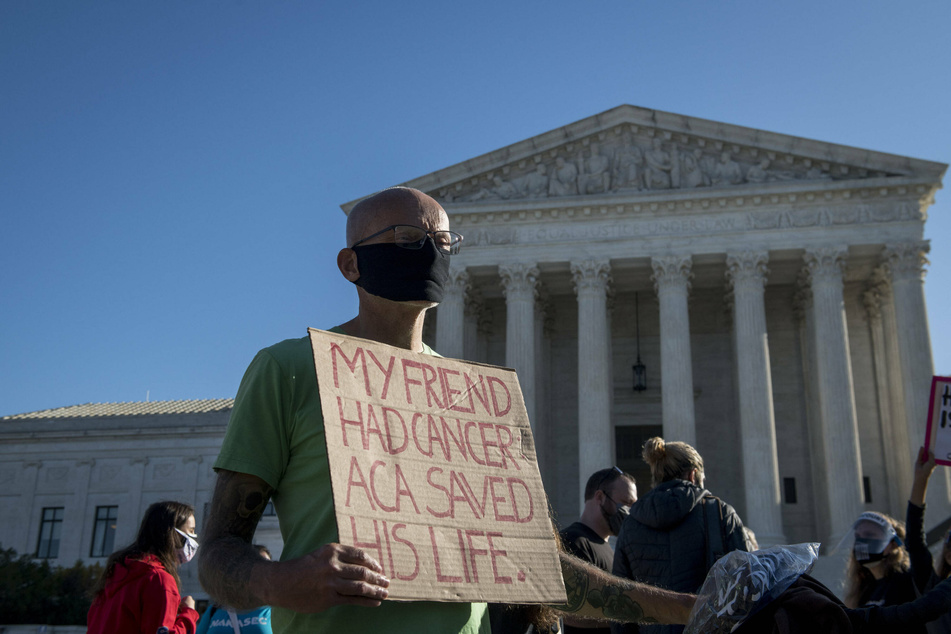Supreme Court: Here are the highlights of the recently closed action-packed session
Washington DC – Want to make sure you didn't miss any of the most important Supreme Court rulings this session? TAG24 has you covered with an overview this year's biggest decisions from the highest court in the land.

The Supreme Court ended its spring session at the beginning of July, bringing a dramatic close to an action-packed judicial season.
It was the first session conducted by the top court's new 6-3 conservative majority after Donald Trump managed to name three new justices during his four-year term as president.
In addition to Neil Gorsuch and Brett Kavanaugh, Trump also successfully nominated Amy Coney Barrett just days before the 2020 election, following the death of Justice Ruth Bader Ginsburg. Barrett was confirmed in late October 2020.
RBG's death came as a severe blow to Democrats and progressives, who were hoping they could hang onto the seat until a new president was installed. Republicans essentially reversed the exact same arguments they used to block Obama's 2016 nomination of Merrick Garland, now US attorney general, in order to justify their confirmation of Barrett.
Supreme Court justices, who are appointed for life, are nominated by the president and confirmed by a single majority in the Senate. That means those nine individuals, not directly elected by the people, wield an enormous degree of power, potentially over several decades.
The recent Supreme Court session gave Americans an idea of what to expect going forward from the conservative top court.
Here are some of the justices' biggest decisions in 2021 and what they mean for everyday Americans.
Voting rights take a blow as dark money groups are given a free pass

With the slew of restrictive voting measures passed in Republican-controlled states around the country and the failed attempts to secure national voting protections with the For the People Act, voting rights have been at the center of American political discourse in 2021, including in the Supreme Court.
In last Thursday's Brnovich v. DNC decision, the conservative justices united to gut the Voting Rights Act of enforceable protections for voters of color. Essentially, the court ruled 6-3 in favor of removing a results test designed to weed out voting provisions that disproportionately disenfranchise minority voters.
Now, the only way to enforce protections for non-white voters is to prove a law was authored with racist intent, which is very difficult to do.
The ruling is a big win for Republican-led states passing their own restrictive voting laws that will disproportionately impact Black and brown Americans.
Also last Thursday, the conservative justices gave a big victory to dark money groups in the Americans For Prosperity v. Bonta case, raised by a right-wing, Koch-brothers-founded organization. The justices ruled 6-3 that California non-profits do not have to disclose their donors to state officials, as forcing them to do so would violate First Amendment rights, The Hill reported.
Some now warn that the decision could lead to new challenges of campaign finance laws, as well as an increase in even more dark money spending to influence elections.
Obamacare ruled constitutional as LGBTQ+ families lose anti-discrimination protections

In June, the Supreme Court for the third time upheld the Affordable Care Act, also known as Obamacare, in their California v. Texas decision.
The ruling maintains health insurance subsidies for over 20 million Americans, as well as protections for tens of millions more with preexisting medical conditions which might otherwise jeopardize their ability to obtain coverage.
The 7-2 ruling was a big defeat for Donald Trump and the 20 Republican-led states backing the challenge.
Meanwhile, the court dealt a blow to LGBTQ+ Americans in Fulton v. Philadelphia, in which they ruled in favor of two Christian-affiliated Philadelphia foster care agencies that refused service to same-sex couples. The case, decided in June, concerned whether a city could exclude private agencies found in violation of anti-discrimination policies from their taxpayer-funded foster care system.
The justices unanimously agreed in favor of the Catholic-backed agencies. According to CNN, several of the conservative judges were dissatisfied with the result, hoping to make it even more difficult to enforce non-discrimination laws that go against individual religious beliefs.
The decision to allow agencies to bar same-sex couples may place an increased burden on the foster care system, with LGBTQ+ Americans seven times more likely to foster or adopt children, the League of Women Voters reported.
College athletes deemed worthy of compensation as former African child slaves are denied reparations

The Supreme Court in June weighed in on the hot topic of compensation for college athletes in National Collegiate Athletics Association v. Alston, unanimously ruling that the league's bar on education-related benefits violates US anti-trust laws.
The decision comes as several states have passed their own laws allowing student-athletes to profit off their name, image, and likeness (NIL), with the US Congress reportedly considering similar measures. The NCAA has also created an interim policy for NIL compensation.
Also in June, SCOTUS ruled 8-1 in Nestlé USA v. Doe that formerly enslaved African children apparently aren't deserving of compensation in US courts.
According to the New York Times, six Malian citizens had sued Nestlé USA and Cargill, alleging that they had been trafficked into slavery as minors and that the American chocolate firms were profiting from child slavery on Ivory Coast cocoa farms.
Several of the justices argued that the plaintiffs hadn't made the connection between the companies' alleged involvement in African child trafficking and their US-based activities sufficiently clear, as required in a narrowed version of the statute the suit was filed under.
The fact that many operational decisions were made in the US was not enough to justify applying the American statute abroad, the justices said.
The next Supreme Court session is scheduled to begin in October 2021.
Cover photo: 123RF/sepavo

